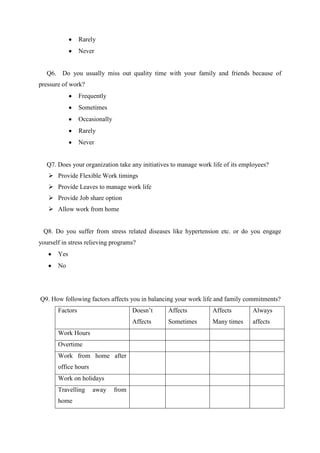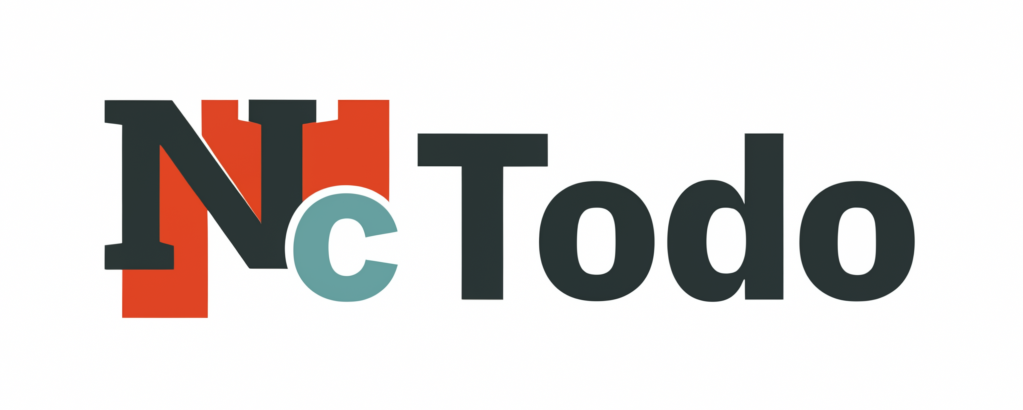
Feeling overwhelmed and struggling to balance work and personal life? Questioning if you’re living life to the fullest? You’re not alone. In today’s fast-paced world, achieving work-life balance seems elusive, yet we continue to search for it, hoping to excel in our careers while still making time for ourselves and loved ones. But here’s the good news: a satisfying work-life balance is achievable. By asking the right questions and making conscious choices, you can unlock the secret to a more fulfilling and balanced life.
In this article, we will explore key questions to help find the perfect work-life balance. Understanding your priorities and values empowers intentional decisions that align with your goals and bring you closer to the harmony you seek. If you’re ready to take control of your life, create more space for what matters most, and find fulfillment, you’re in the right place. Let’s dive in and discover the power of finding your perfect work-life balance!
Work Life Balance Questions
Do you struggle to balance work and personal life? This is a common challenge that many people face today. Finding the right balance can be a constant struggle, but asking the right questions can help evaluate and improve your work-life balance.
Are you managing your time effectively? Assess how you spend your time. Do you dedicate enough time to your personal life, like spending quality time with family and hobbies? Ensure you don’t neglect your personal life for work.
Setting boundaries between work and personal life can be challenging, especially with constant connectivity. However, establishing clear boundaries can promote a healthy work-life balance. Designate specific times for work and personal activities, and disable work-related notifications outside of work hours.
Maintain a strong support system to improve your work-life balance. Seek support and advice from friends, family, or colleagues who understand the challenge. They may have insights on how to effectively manage their own work and personal lives.
Taking care of yourself is crucial for maintaining a healthy work-life balance. Prioritize self-care activities like exercise, sleep, and relaxation. Being well-rested and relaxed will increase productivity and overall presence in work and personal life.
By asking yourself work-life balance questions and making conscious changes accordingly, you can create a fulfilling and harmonious life with a balanced coexistence of work and personal commitments.
Overview
Work-life balance is the positive equilibrium between work and personal life, achieved by balancing time and energy between work and personal activities, relationships, and self-care. It is crucial for maintaining physical, mental, and emotional well-being, as well as overall satisfaction and happiness.
To understand work-life balance, we can look at different aspects that contribute to it. The table below outlines key questions related to work-life balance:
Aspect Questions
—————-
Work – How many hours per week do I work? Do I have flexibility in my schedule? Can I disconnect from work during personal time?
Personal Life – Do I have time for hobbies, interests, and activities outside of work? How much quality time do I spend with family and friends? Can I pursue personal goals and aspirations?
Health and Well-being – Am I taking care of my physical health through exercise, nutrition, and sleep? Do I have time for relaxation, stress management, and self-care? How is my mental and emotional well-being?
Reflecting on questions and assessing work-life balance helps individuals identify areas that need improvements. Individuals need to find a balance that suits their needs and priorities, set boundaries, and have realistic expectations at work and in their personal life. Prioritizing self-care and maintaining work-life balance leads to greater satisfaction and happiness.
Key Features
The concept of work-life balance is increasingly important in today’s society. Many individuals struggle to juggle professional and personal demands, resulting in stress, burnout, and decreased well-being. To address this, employers and individuals seek features promoting a healthy work-life balance. Flexible scheduling allows individuals to have more control over when and where they work, prioritizing personal obligations and hobbies. Working remotely, adjusting hours, or using compressed workweeks fosters a better work-life balance.
Another important feature is a supportive work environment. Prioritizing work-life balance and creating a culture that supports it helps employees seek help and make necessary adjustments for achieving balance. This can include implementing policies like telecommuting, onsite childcare, and resources for stress management and mental health support.
Technology also plays a significant role in achieving work-life balance. While it can blur boundaries, it also increases efficiency and productivity. The ability to work remotely or access work-related information outside traditional office hours gives individuals more control over their time and helps them integrate work and personal responsibilities.
The key features of work-life balance are flexible scheduling, a supportive work environment, and the proper use of technology. By incorporating these features into their lives, individuals can create a more harmonious balance between work and leisure.
Practical Tips
Finding a balance between work and personal life can be challenging, but with a few practical tips, it is possible to achieve a satisfying lifestyle. One important tip is to prioritize your time effectively. This means setting clear boundaries between work and personal life and allocating specific time for each. By creating a schedule and sticking to it, you can ensure dedicated time for work tasks, relaxation, hobbies, and quality time with loved ones. Additionally, learning to delegate tasks and ask for help reduces stress and frees up more personal time.
Taking breaks and practicing self-care is essential for a healthy work-life balance. Make time for activities that help you relax and recharge, like exercise, meditation, or spending time outdoors. Prioritize self-care to improve your well-being and increase productivity in all areas of life.
Setting realistic expectations for yourself and others is crucial. Recognize that you cannot do everything perfectly and it’s okay to make mistakes or not accomplish everything on your to-do list. By setting realistic expectations, you can reduce pressure, stress, and achieve a better work-life balance.
Implementing practical and effective tips can help you achieve a better work-life balance and enjoy a more fulfilling lifestyle. Keep in mind that finding the right balance is a personal journey, and it may require some trial and error. Be patient and remember that small changes can make a big difference in achieving a more balanced and enjoyable life.
Personal Perspective
Finding a work-life balance is a highly specific matter. Each person has different priorities, values, and responsibilities that shape their perspective on achieving equilibrium between work and personal life. What works for one person may not work for another, so it is crucial to consider your own desires and circumstances when addressing this issue.
From a personal perspective, work-life balance means having enough time and energy to devote to both work and personal life while also finding satisfaction and fulfillment. It involves setting boundaries, prioritizing activities, and making conscious choices about how to allocate your time and energy. For some, it may mean working reduced hours or having flexible arrangements to accommodate personal commitments.
Achieving work-life balance requires constant reflection and adjustment. Circumstances and priorities change, so periodic reassessment and necessary changes are necessary. This may involve reevaluating career choices, seeking support from colleagues or loved ones, and making difficult decisions about work or personal life.
Finding a work-life balance is a personal journey that requires self-awareness, adaptability, and a willingness to make changes. It is a lifelong pursuit that can lead to satisfaction, happiness, and well-being. By prioritizing your needs and setting boundaries, you can create a balance and thrive personally and professionally.
Interviews
Interviews are crucial to the hiring process. They allow employers to assess a candidate’s qualifications, skills, and fit for the job. They also provide an opportunity for the candidate to showcase their abilities and learn about the company. Companies use interviews to evaluate a candidate’s technical knowledge, problem-solving abilities, communication, and fit.
Different types of interviews include phone, video, and in-person. Phone interviews are the initial round, helping employers assess communication skills and candidate fit. Video interviews are popular remote options, evaluating non-verbal communication and tech abilities. In-person interviews occur later and measure interpersonal skills and professionalism.
Employers commonly inquire about a candidate’s work-life balance and approach to maintaining equilibrium during interviews. These questions are crucial in assessing time management, stress handling, and the prioritization of personal and professional commitments. Candidates should be ready to share past examples of successfully balancing work and personal life, and how those techniques relate to the prospective role.
Related Resources
As you reach the end of this article, I hope you’ve gained insight into the importance of maintaining a healthy work-life balance. Finding equilibrium is a lifelong journey that requires continuous effort.
You’ve learned that prioritizing self-care, setting boundaries, and managing time effectively are crucial for work-life balance. While work is undoubtedly important, it should not overshadow family, relationships, health, and personal interests.
To apply these insights to your life, reflect on your situation. Are there areas that need improvement? Are you dedicating enough time to loved ones and yourself? Consider committing to small changes for balance. Set aside time for exercise or relaxation, or establish regular digital detoxes to disconnect from work.
Remember, work-life balance is adaptable. Find what works for you for long-term happiness.
“The 4-Hour Workweek” by Timothy Ferriss is a book that challenges conventional notions of work and offers strategies for maximizing productivity and achieving work-life balance. It presents practical tools and tips for managing your time, setting goals, and achieving a healthy work-life balance.
“The Power of Full Engagement” by Jim Loehr and Tony Schwartz explores the concept of managing energy rather than time and offers strategies for achieving peak performance and sustainable work-life balance.
Remember, you have the power to create a harmonious and fulfilling life that encompasses both your professional and personal aspirations. Take action today, embrace the challenges, and reap the rewards of a well-balanced life. You deserve it!
